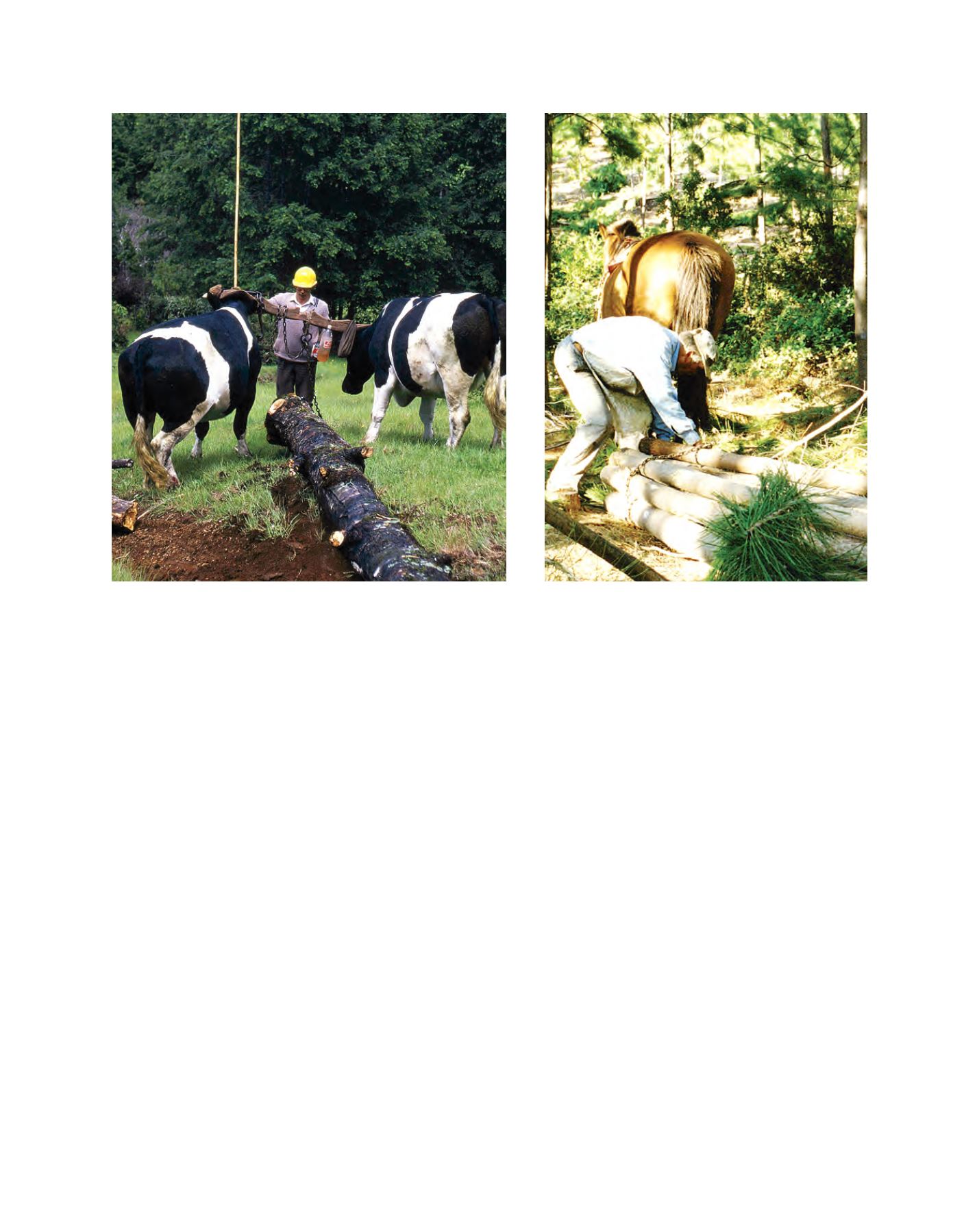

[
] 239
Legislation and programmes
Decree Law No. 701 regarding forest development had a
dual purpose: preservation of the forests existing at the
time of its enactment and incorporation of new lands
into the productive forestry process. The soil protec-
tion and recovery aspects of this political instrument
are clearly laid down inasmuch as this body of laws
determined the obligation to reforest.
Later, in 1998, came the enactment of Law No. 19561,
which introduced several amendments to Decree Law
No. 701, including a focus on smallholdings and the
incorporation of soil recovery into the group of activi-
ties deserving bonuses, in addition to prolonging its
effectiveness by 15 years.
The immediate and future challenge of sustaining the
effort is entwined with improving the rural economy,
where more than two million hectares of lands prefer-
entially suited for forestry, with high erosion indices,
are waiting to be afforested. For its part, the struggle
against desertification and climate change, priority
elements at both national and international level, are
amply considered in the elaboration of a new Forest
Promotion Law which is to be applied as of 2013, once
the current one becomes extinct.
As a central element of its activity, CONAF carries
out the Plantations Management Programme, which is
inserted in the sectoral policy of the Government, for the
purpose of contributing toward increasing the competi-
tiveness of small-scale producers through improvement
try’s natural resources, with a particular emphasis on its forestry.
This was made evident through several articles and declarations,
although it was only in the 1930s that the importance of these
resources was formalized in a body of laws, by means of Supreme
Decree No. 4363 (Forest Law, 1931).
This legislation was followed in 1939 by the creation of the
production development agency Corporación de Fomento de la
Producción (CORFO), giving rise to a project that required the
development of a strategy designed to gather information regard-
ing the country’s natural resources, explicitly concentrating on
forestry, with a strong predominance of native forests, in the face
of the deficit of statistical records that existed at the time.
In subsequent decades other actions were carried out, such as
large-scale afforestation programmes, the creation of the Universidad
de Chile’s Forest Engineering School and the Forestry Institute
(INFOR), the construction of pulp and paper plants and the enact-
ment in 1974 of Decree Law No. 701 on Forest Development,
evidencing the importance of the role of the State in furthering the
growth of the sector.
The founding of CONAF was the result of a lengthy process
during which the Chilean nation became increasingly aware of the
need to preserve its forest and wildlife resources as well as to further
their rational exploitation for the purpose of contributing towards
the national economy and improving the quality of life for Chilean
men and women.
This lengthy process came to a close on 13 May 1970, with the
creation of the Corporación de Reforestación (reforestation agency),
which was later renamed as the Corporación Nacional Forestal
(CONAF).
Logging with oxen in native forest in southern Chile
Rural worker carrying out horse-drawn hauling of pine logs
Image: CONAF
Image: CONAF
















